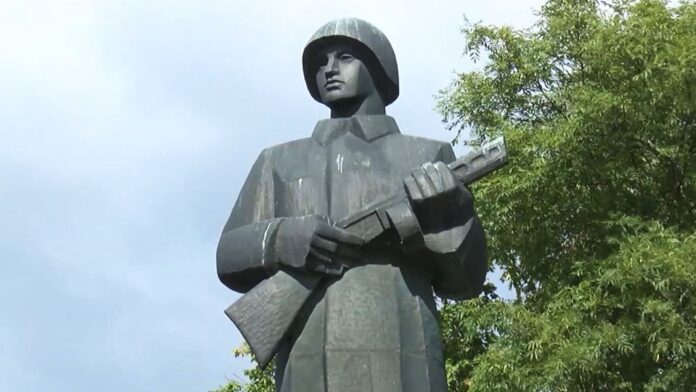Tatjana Zdanoka, an MEP from Latvia on behalf of the Latvian Russian Union together with her three colleagues submitted a complaint to the UN Human Rights Council with regard to the plans by the authorities of Latvia to demolish the monument to the Soviet Soldier in Rezekne. Tatjana Zdanoka sees such plans as a clear breach of several articles of the UN Covenant on Civil and Political Rights.
The UN Human Rights Commission demanded from the government of Latvia to not take irreversible actions until they make a reasoned decision. Despite everything, Latvia has taken actions, but now the decision is still being prepared. Last spring the Latvian government sent their considerations to the UN. Recently the applicants also sent their detailed comments on the government´s memorandum.
Tatjana Zdanoka tells about the arguments presented by the government and the comments provided by the applicants. According to her, the lawyers presenting the government applied the well-known formula ”the best defense is a good attack” by making a 60-page list of the applicants´ misdeeds. They in particular scrutinized Zdanoka´s votes in the European Parliament as well as the activities of many other activists of the Latvian Russian Union. They criticized not only the Latvian Russian Union party but also ”For the Native Language” party since one of the applicants, Vadim Gilis, is also a co-founder of this party.
Tatjana Zdanoka also explained that the govenment sourced all this information to the open annual reports by the Latvian Security Police. Therefore, they regard as some ultimate truth anything the Security Police claims. Tatjana Zdanok stresses that all their attacks in the communication to the UN ”are directed at our political activities, which, as we noted in our response, are absolutely lawful. Even under the current expanded interpretations of the criminal code, none of us has faced any charges.” She emphasized that the government surprised not only with the groundlessness of its arguments but also with a negligent attitude toward the facts. For example, they got confused in establishing the identity of one of the plaintiffs, Valery Petrov, not realizing that there are two well-known politicians with such a “rare” name confusing a former deputy of the Rezekne City Council with a former deputy of the municipal government.
The government was forced to respond to the question why it did not comply with the UN directive on temporary measures prohibiting the demolition of the monument. On the one hand, it referred to the enacted law, according to which these monuments had to be destroyed by a certain deadline. On the other hand, it claimed that the monument was not destroyed because the statue and some fragments of the pedestal were placed in the Museum of Occupation. Therefore, as state lawyers assert, people can go there if they really need to remember the events of 80 years ago.
Tatjana Zdanoka tells, ”In general, according to their opinion, nothing has happened. The monument allegedly survived and it can be even seen. In our response, we made the following comparison: imagine that a temple is detsroyed and someone take a few cions from it placing them in a museum and then invites all believers to pray to them already there. But as we know, a museum is a place to look at the icons, not to pray to them. And now we come to the ”Alyosha” monument to celebrate the Victory and honor the memory of the fallen soldiers who are our ancestors”.
The complaint to the UN with regard to the Alyosha monument in Rezekne also referred to the fact that relatives of the applicants had fought in the ranks of the Soviet Army and all have connection to Rezekne.
For example, Tatjana Zdanoka´s paternal ancestors were natives of Rezekne. They owned a house on the site of which the ”Alyosha” monument was erected after the war. Valery Petrov’s almost all relatives on the father´s side were gunned down in Anchupani settlement near Rezekne although they were civilians. The ancestors of Vadim Gilis had different war paths, perished in war and are buried in unknown graves. Alexey Vasiliev, the vice-mayor of Daugavpils, was born in Rezekne and his mother was taken by force to the Nazi Germany while his relatives died of hunger in the besieged Leningrad or perished under bombings while their bodies were never found.
Tatjana Zdanoka says that the necessity to preserve family histoy prompted all of them to file their complaint to the UN. The ”Alyosha” monument was the place for all of us where we could come and remember our relatives, especially those whose burial sites are not known”.




















